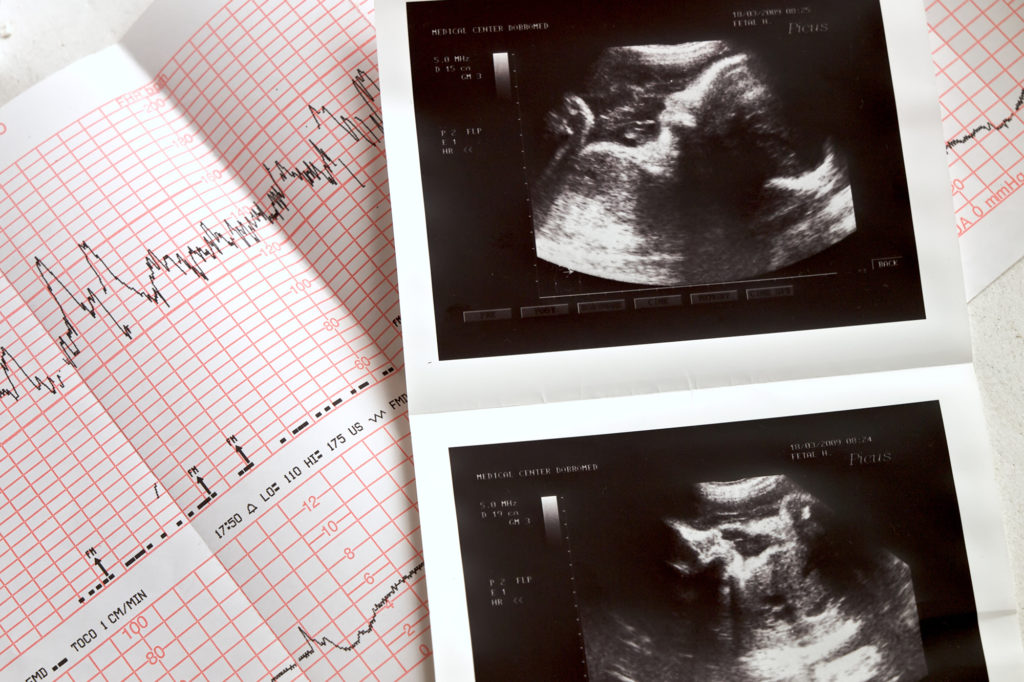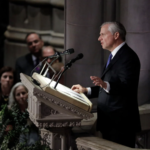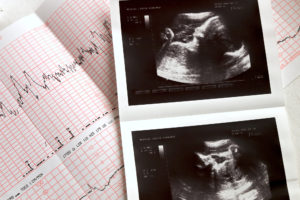
AUSTIN, Texas (BP) – The state of Texas is appealing a federal court order in an effort to reinstate its five-week-old ban on abortion when a fetal heartbeat can be detected.
Texas announced its intention to petition the Fifth Circuit Court of Appeals in New Orleans following an Oct. 6 order by federal judge Robert Pitman that granted a preliminary injunction requested by the Biden administration against enforcement of the Texas Heartbeat Act (S.B. 8). Before the ruling, the law, which took effect Sept. 1, prohibited abortions as early as five to six weeks into pregnancy.
Texas Attorney General Ken Paxton tweeted Thursday morning (Oct. 7), “We disagree with the Court’s decision and have already taken steps to immediately appeal it to the Fifth Circuit Court of Appeals. The sanctity of human life is, and will always be, a top priority for me.”
Pitman’s action came in spite of a U.S. Supreme Court order Sept. 1 that permitted the Texas law to go into effect. In a 5-4 split, the justices in the majority said their action “is not based on any conclusion about the constitutionality of Texas’s law” and does not restrict “other procedurally proper challenges” to the measure.
The Supreme Court already has agreed to rule in its current term on a Mississippi law that prohibits the abortion of an unborn child whose gestational age is more than 15 weeks. The court will hear oral arguments Dec. 1 in that case, Dobbs v. Jackson Women’s Health.
The Texas law has been the target of criticism not only because of its early prohibition on abortion but because of its means of enforcement. In an unusual move, the law prohibited any government official from enforcing the ban but authorized a private citizen to bring a civil lawsuit against someone who performs a prohibited abortion or assists in the performance of such a procedure. Under the law, a court is to award at least $10,000 to a successful plaintiff.
Estimates by pro-life organizations of the number of unborn children already saved because of the law vary from more than 3,000 (National Right to Life) to more than 4,700 (Susan B. Anthony List).
Brent Leatherwood, acting president of the Southern Baptist Ethics & Religious Liberty Commission (ERLC), cited a quote from Pitman’s opinion in expressing his disagreement.
“He stated, ‘[T]his Court will not sanction one more day of this offensive deprivation of such an important right.’ While he was talking about abortion, it would appear he is blind to the fact his ruling would have the effect of depriving the most essential right to life that every person, including our preborn neighbors, is due,” Leatherwood said in written comments.
“With the critically important Dobbs case in front of the [high court], our prayer should be that these sorts of judicial opinions will become a relic of a bygone era and that, finally, our nation’s legal framework will both respect and protect each and every life.”
Chelsey Youman, Texas director of Human Coalition Action, called Pitman’s order “a shameless example of unfettered judicial activism at its worst. We remain confident in the appellate process and are hopeful that lives will be saved.”
Human Coalition Action is the public policy advocacy arm of Human Coalition, a Texas-based organization that oversees a network of pregnancy care clinics nationally.
Biden administration officials applauded the ruling.
U.S. Attorney General Merrick Garland described the order as “a victory for women in Texas and for the rule of law.”
White House Press Secretary Jen Psaki said, “The fight has only just begun, both in Texas and in many states across this country where women’s rights are currently under attack.” She reaffirmed President Biden’s support for a legislative effort to codify the 1973 Roe v. Wade decision, which legalized abortion nationwide.
In his 113-page order, Pitman said the Biden administration is likely to succeed on the merits. “It is substantially likely that S.B. 8 violates the Fourteenth Amendment, whether as an unconstitutional pre-viability abortion ban, or as an unconstitutional undue burden on pre-viability abortion,” he wrote.
“A person’s right under the Constitution to choose to obtain an abortion prior to fetal viability is well established,” wrote Pitman, who was nominated by President Obama in 2014. “Fully aware that depriving its citizens of this right by direct state action would be flagrantly unconstitutional, the State contrived an unprecedented and transparent statutory scheme to do just that.”
Texas “created a private cause of action by which individuals with no personal interest in, or connection to, a person seeking an abortion would be incentivized to use the state’s judicial system, judges, and court officials to interfere with the right to an abortion,” he wrote.
Pro-life lawyers pointed out Pitman’s order would still allow violators of the ban to be held liable for abortions that violate the law and are performed while the injunction is in effect if it is later vacated.
The Texas law became the first ban on abortion after a fetal heartbeat to take effect in the United States. About 85 to 90 percent of abortions in Texas are performed on women who are six weeks or more pregnant. At least 10 other states have enacted fetal heartbeat bans, but courts have blocked the others from going into effect.
The ERLC, other pro-life organizations and the state of Mississippi have filed briefs in the Dobbs case that urged the Supreme Court to reverse the Roe opinion and the 1992 Planned Parenthood v. Casey decision, which affirmed Roe but permitted some state regulation of the procedure.
The Texas ban, which was enacted in May, includes an exception for a medical emergency in a mother but none for a pregnancy that is the result of rape or incest.





















